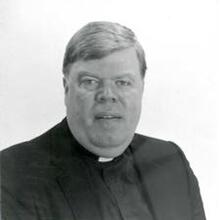Contemporary philosophy has a problem. No one outside the philosophical tribe seems to be listening.
The most abstract of the humanities, philosophy grows ever more marginal in academe. As core curricula are eviscerated in favor of STEM instruction, philosophers often find themselves confined to teaching applied ethics—when they find themselves teaching at all. The raising of philosophy’s perennial questions and the study of its classical texts have become a luxury reserved for a few elite colleges. The discipline’s hyper-specialization has not helped it find a broader public. A recent philosophy conference I attended featured such tantalizing topics as “Causal Models and the Ambiguity of Counterfactuals.”
The American Philosophical Association has launched a Committee on Public Philosophy, which anxiously offers five annual prizes for the best op-ed pieces written by a philosopher. But the op-eds will do little to revitalize a profession that has largely abandoned the central questions of existence (God, knowledge, freedom) in favor of arcane terminological disputes.
A similar crisis has shaken the philosophical estate within the church. Before 1970 philosophy enjoyed an enviable prominence in the curriculum of Catholic colleges. This Neo-Scholastic philosophy was certainly structured around the perennial questions—Does God exist? What is virtue?—but it was an odd, manual Thomism in which students never actually read Aquinas. A smug catechetical certitude seemed to lurk behind the paint-by-numbers proofs and the gleeful one-paragraph refutations of modern “adversaries.”
That world has disappeared; its chastened replacement in the Catholic academy bears the stamp of marginality: minimal curricular presence, hyper-specialization, incoherence among the squabbling philosophical factions.
This cultural recession of philosophy has encouraged some Catholics to abandon philosophy as a central component of the church’s discourse. The issue has become especially neuralgic in the dispute over the formation of clergy. But the project of a nonphilosophical Catholicism is fraught with peril.
Without a substantial philosophical formation, the teaching of the church on faith and morals becomes incomprehensible. It is difficult to understand, let alone teach, basic Christian doctrines, like the Trinity and the Incarnation, without a metaphysical grasp of person and nature. Informed by natural-law reflection, ecclesiastical moral teaching becomes a cipher without serious investment in moral philosophy. The principle of double effect, crucial in the church’s medical and military ethics, did not tumble out of a biblical page.
Pope Emeritus Benedict repeatedly reminded his listeners that the church’s Hellenic philosophical impetus cannot be sliced off from an illusory pristine Gospel. The Bible’s wisdom books, Johannine Gospel and Pauline epistles already present the Gospel in concepts drawn from classical Greek philosophy. Augustine’s Platonism and Aquinas’s Aristotelianism model the synthetic passage through both Athens and Jerusalem that each Christian generation must undertake. For all their ecclesiastical contributions, the social sciences simply cannot engage the properly philosophical questions of the nature of truth or the destiny of the human soul. The universalist tenor of philosophical discourse also permits the church to find common ground with more secular social-justice agents impervious to faith-based appeals to Scripture or tradition.
The Lutheran theologian Paul Tillich once argued that the church needed to correlate philosophy with theology in its proclamation of the Gospel. In his vision, philosophy articulated the most universal questions regarding human existence, indeed existence itself. The peculiar power of philosophy lies in the logical rigor and conceptual precision with which it pursues this task.
The distinctive task of the theologian is to show how God’s word responds to these philosophical questions. It is hard to see how a church liberated from philosophical interrogation can avoid wandering into ecclesiastical positivism or the shifting dunes of relativism.








